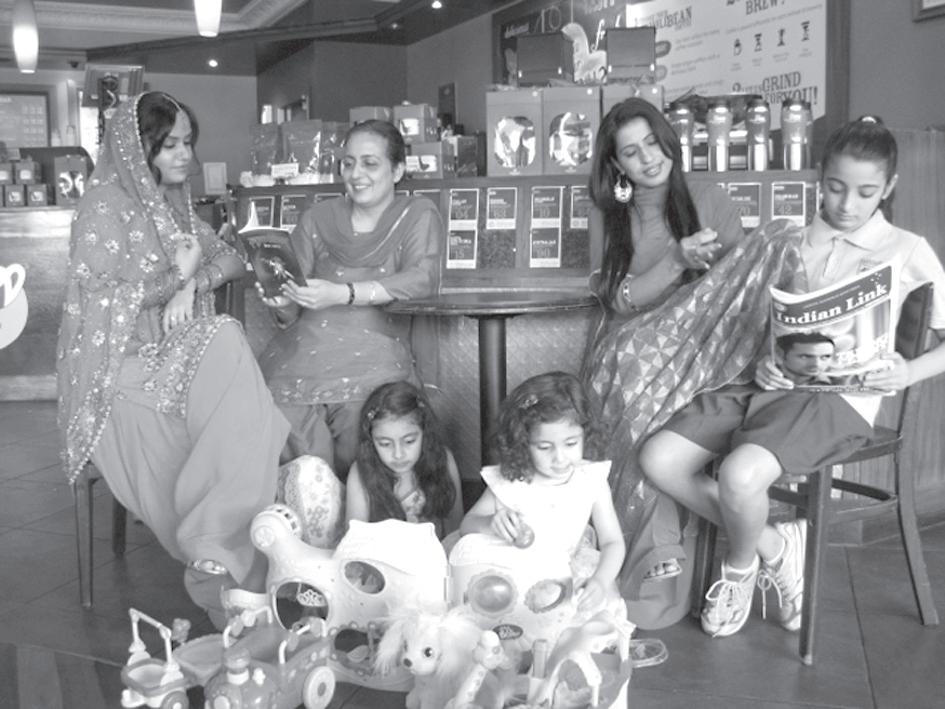
2 minute read
The XX factor
from 2009-12 Sydney (1)
by Indian Link
Harshinder Kaur was driving in rural Punjab when she heard the cries of what seemed like a newborn child. Stopping to investigate, she and her husband found a newborn baby lying on a heap of garbage. They were just in time to save the child from being ripped apart by mongrels.
A doctor by background, Harshinder took the baby to safety and made enquiries about the mother. She was shocked at what she learned. The father of the child had apparently threatened the mother: If the fourth child is not a boy, then… In order to protect her first three children - all girlsthe mother had abandoned the baby upon its birth.
Harshinder is herself the fourth girl child in her family.
That was eleven years ago, and it tuned out to be a turning point in Harshinder’s life.
Today Dr Kaur is a consultant paediatrician at Rajindra Medical College and Hospital in Patiala (Punjab), a prominent speaker, writer and social worker, whose life is dedicated to eradicating female infanticide and foeticide.
In late November, Dr Harshinder Kaur was honoured in Australia’s Federal Parliament for her social work and for creating global awareness about female foeticide. She also received the Pride of Punjabis’ award instituted by the Punjabi Council of Australia. It was presented to her by Mr John Aquilina, Leader of the House of NSW Parliament.
These are the latest in a string of awards she has received for her lifelong work in the field.
Talking to Indian Link, Dr Kaur explained that although mothers, when they put an end to a baby girl’s life - or abort female foetuses - appear to be the perpetrators of the attack, they are actually the victims. As a newly wed bride meets the elders of the family, she is greeted with the saying, “Doodho nahao, puto phalo” (May god give you prosperity and sons). Traditionally, the major cause of discrimination against the female child has been the preference for sons so deeply rooted in our society. In urban areas, sons are supposed to take care of aged parents. In rural areas, they are called upon to provide the income; they are the ones who do most of the work in the fields. In this way sons are looked to as a type of insurance.
Elaborating on the main reasons behind female foeticide, the doctor listed dowry, lack of support to old parents, and exploitation of women.
In one of the studies Harshinder Kaur conducted, it was found conclusively that the increase in cases of cancer among rural women was a result of the ingestion of the male sex hormone testosterone. Interestingly, the same was found to be true for the increasing number of eunuch births.
Speaking at the United Nations convention in Geneva in June this year, Harshinder Kaur called upon the world body to provide support to the many NGOs that are working in this area. She herself has set up one such, aptly named Harsh Trust. (While ‘Harsh’ is no doubt a short form of her name, it also means ‘joy’). The Trust takes care of the educational needs of some 300 girls.
To raise funds for the program, Harshinder travels around the country and the world, raising awareness of the problem. Proceeds from the sale of her novel Bhroon Hatya: Ek Shraap (Foeticide: A Curse) have also helped considerably.
(The book is set to be a film shortly, to be produced and directed by Uzma Xina Kang, the assistant director of Jug Mundhra’s Provoked).
Knowing that her path would hardly be covered with rose petals, Dr Harshinder Kaur uses her strength of will and focus as her armour, all set to face any challenge that might come in the way of the cause that she is working for – the XX chromosome.








